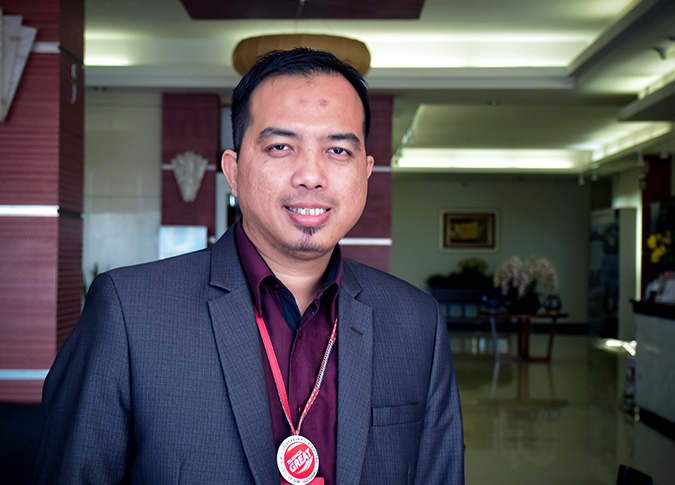From Where I Stand: “I expect that the CEO of Telkomcel will be a woman within the next 5 - 10 years.”
As CEO of Telkomcel Timor-Leste, Yogi Rizkian Bahar signed the CEO Statement of Support for the Women’s Empowerment Principles in 2010.Date:


Our [company] culture gives equal opportunity to everyone, both men and women.
40 per cent of the managers are women in our company and they have made an outstanding contribution to the company. For instance, we have a colleague, Joana. She is a manager of our Enterprise and Whole Sales Department, and more than 50 per cent of revenue is coming from that Department. This shows us that women fit and have great achievements in high-level positions.
I believe that women in Timor-Leste can actively participate in public and economic life. Through the e-commerce platform that we’re planning to launch, they can sell products online, which can further help women entrepreneurs.
An important barrier that women face is in education. We’re inviting Timorese women to join the economy, but we also have to pave the way for quality education and training for women. I hope that UN Women can encourage the Government to accelerate education access for women, ensuring every girl and boy, every woman or man can equally benefit from education.
As part of Corporate Social Responsibility of Telkomcel, we run a scholarship programme for our employees (including in Timor-Leste) at the ‘Telkom University’. I believe that women are very talented and create positive results in their businesses with their leadership and knowledge.
We would like to drive our employees to achieve their highest career goals. I expect that the CEO of Telkomcel will be a woman within the next 5 or 10 years.”
As CEO of Telkomcel Timor-Leste, Mr. Yogi Rizkian Bahar signed the CEO Statement of Support for the Women’s Empowerment Principles (WEPs), a set of principles for businesses offering guidance on how to empower women in the workplace, marketplace and community, developed jointly by the UN Women and the United Nations Global Compact in 2010. Since the launch of the Women's Empowerment Principles in 2010, over 1,000 CEOs from around the world have signed the CEO Statement of Support for the WEPs, signaling their support for gender equality and the guidance provided by the Principles. Rizkian Bahar’s work relates to Sustainable Development Goal (SDG) 5, which promotes equal participation of women in decision-making as well as SDG 8, which promotes sustained economic growth, higher levels of productivity and technological innovation.